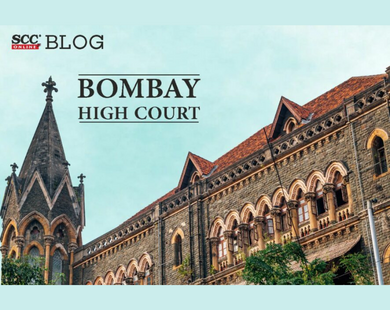Bombay High Court: In an appeal filed under Section 14-A of the Scheduled Castes and Scheduled Tribes (Prevention of Atrocities) Act, 1989 (‘the Atrocities Act') by the original accused persons challenging order passed by Additional Sessions Judge, Newasa/Special Judge in a Criminal Bail Application thereby rejecting the application filed under Section 438 of the Code of Criminal Procedure, 1973 by the appellants, a division Bench of Vibha Kankanwadi and Abhay S Waghwase, JJ., sets aside the impugned order and granted anticipatory bail, in case the appellant gets arrested in connection with offences punishable under Section 143, 147, 149, 354, 354-D, 436, 504, 506 of Penal Code, 1860 (IPC) under Section 3(1)(r), 3(1)(s), 3(1)(w)(i), 3(1)(w)(ii), 3(2)(va) of the Scheduled Castes and Scheduled Tribes (Prevention of Atrocities) Act, 1989 and under Section 66(e) of the Information Technology Act, 2008.
The informant in the FIR states that accused 1 used to look at her with an evil eye, shoot videos from mobile, has hurled abuses at her and her husband by the name of caste by the accused and his landlord, pelting stones, whistling from the terrace, making noise with the help of utensils, making different kind of sounds and continuously blowing the reverse horn of the vehicle.
Counsel for the accused submitted that though the alleged last incident is stated to have taken place on 24-03-2022, the FIR was lodged on 15-06-2022, therefore, there is an apparent delay in lodging the report. It was also brought before the court that previously, even the accused persons had lodged complaint applications alleging that FIR is an act of vengeance with an ulterior motive to purchase the house, where currently the appellants are residing, however, the landlord is not willing.
On perusal of various documents placed on record, the Court noted that what is caste of the informant was not forming part of the abuse, further facts of the case clarifies that the abuses were given on phone and thus, abuses when given on phone cannot be said to be within the public view or at a public place so as to attract the ingredients of offence punishable under Section 3(1)(r) or 3(1)(s) of the Atrocities Act.
The Court further noted that in the incident alleged regarding pelting stones, the place where the informant was standing, or her husband was standing and where the accused persons were standing is not clarified in the FIR. Therefore, these facts also do not attract the offence under Section 3(1)(r) and 3(1)(s) of the Atrocities Act.
The Court further recorded that in order to attract Section 3(1)(w)(i), the person should intentionally touch a woman belonging to a Scheduled Caste knowing that she belongs to that caste and such touch must be of a sexual nature and, in fact, without consent, however, the reading of entire FIR will not give any such picture that any of the appellants had in fact touched the body of the informant with sexual intent, therefore, the offence is not attracted.
In relation to all other allegations, the Court remarked that merely because some sound is created by a person in his house, we cannot directly infer that it is with such an intention that it is with the sexual nature towards the informant. Therefore, even prima facie, the offence under Section 3(1)(w)(ii) of the Atrocities Act cannot be said to be attracted.
The Court concluded that sufficient material is before the Court to infer that the FIR has been lodged with an ulterior motive, and as regards the offence under IPC is concerned, the physical custody of the appellants is not required. Thus, the Court granted interim protection to the accused on personal bond of Rs.15,000/- (Rupees Fifteen Thousand only) each with one solvent surety of Rs.15,000/- (Rupees Fifteen Thousand only) each.
[Yogesh Laxman Pandav v. State of Maharashtra, 2023 SCC OnLine Bom 229, decided on 05-01-2023]
Advocates who appeared in this case :
Mr. N.B. Narwade, Advocate for appellants Mr. A.M. Phule,
APP for respondent 1
Mr. S.D. Kotkar, Advocate for respondent 2
*Arunima Bose, Editorial Assistant has reported this brief.






